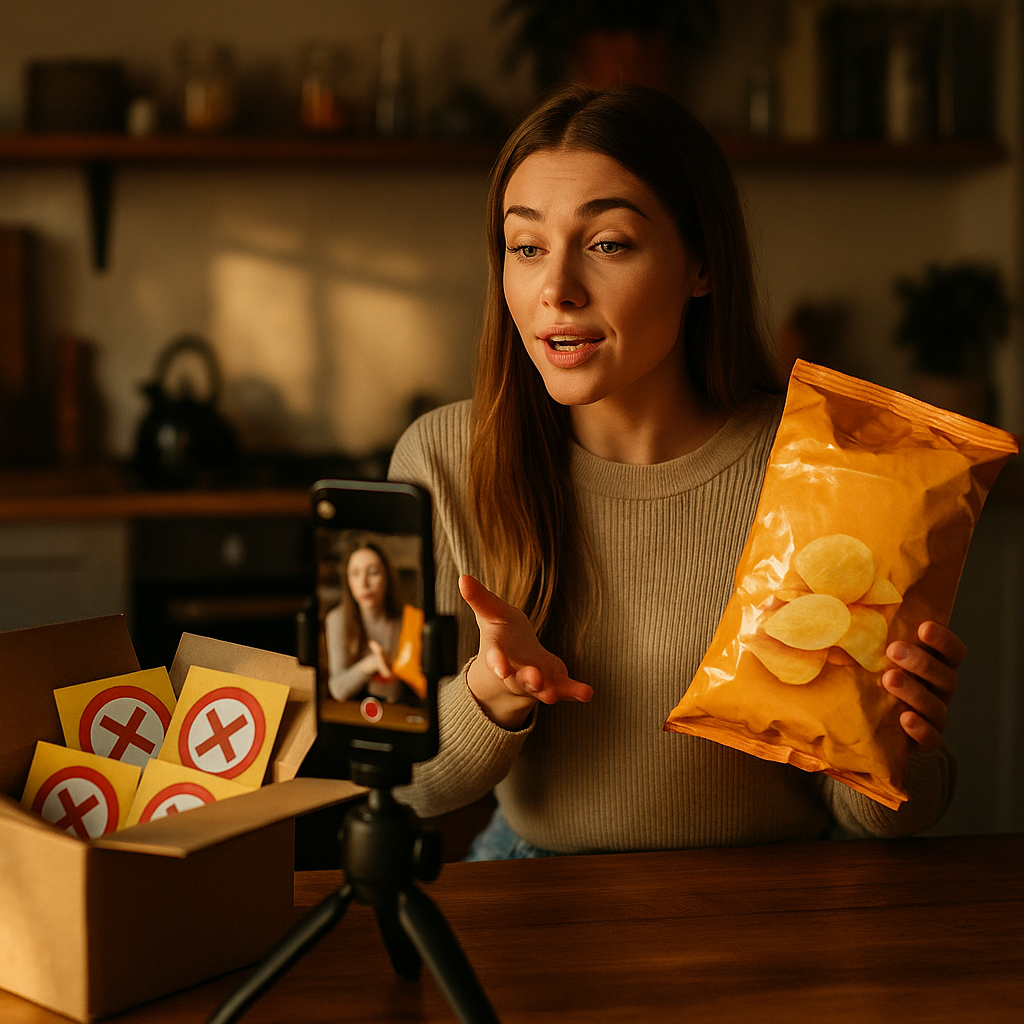In this case study, discover how a leading CPG brand successfully leveraged influencer marketing to support a product recall while maintaining consumer trust and brand reputation. Learn actionable strategies to manage crisis communications in the digital age—and find out why influencers are a powerful part of your crisis response toolkit.
How Influencer Marketing Turned a Product Recall into an Opportunity
The phrase “product recall” often conjures anxiety for consumer packaged goods (CPG) brands, commonly resulting in reputational risk and potential loss of consumer confidence. However, in 2025, a well-known CPG snack brand faced a major recall that threatened both sales and public trust. Instead of relying solely on traditional PR, the brand tapped its established influencer network across diverse social media platforms to communicate transparently and restore confidence quickly.
By using influencer marketing during the recall, the company transformed a challenging crisis into an opportunity to demonstrate accountability, transparency, and care for its customers. This bold approach, rarely highlighted in previous recall case studies, became a new best practice in digital crisis management—and other CPG brands are taking notice.
Transparency and Trust: Why CPG Brands Choose Influencers During Crisis
Recent consumer reports show modern audiences expect brands to communicate openly, especially in sensitive situations. In 2025, Edelman’s Trust Barometer found that 76% of consumers trust information shared by “people like themselves”—such as influencers—over brand-led messages. For the CPG snack brand, leveraging relatable influencers who have already built credibility with their followers allowed the company to:
- Deliver authentic, empathetic messages about the recall and steps being taken to ensure safety.
- Reach diverse audiences rapidly across Instagram, TikTok, and YouTube, surpassing the immediate reach of traditional press releases.
- Mitigate rumors and misinformation through timely, fact-based updates from trusted voices.
Influencers also answered questions in real time, providing a bridge between the brand and concerned consumers. The transparency achieved through influencer partnerships not only avoided backlash but actually enhanced long-term brand loyalty.
Strategic Execution: Collaborating with Influencers on Recall Messaging
The CPG brand’s success hinged on a carefully mapped influencer collaboration strategy. Rather than a blanket message, the company’s communications team worked with influencers who authentically represented the brand’s audience segments—including parents, health advocates, and lifestyle creators. The plan included:
- Pre-briefing influencers privately about the recall, the reasons behind it, and specific consumer safety instructions.
- Offering clear talking points but allowing influencers to use their own voice and preferred content formats (e.g., Instagram Stories, TikTok Q&As, YouTube explainers).
- Leveraging influencer feedback to refine messaging in response to community concerns, ensuring two-way communication instead of a “one-size-fits-all” statement.
This tailored approach ensured message accuracy while maintaining influencer authenticity—a key factor in audience engagement. Influencers, equipped with the latest information, were able to address followers’ concerns as they arose, minimizing panic and promoting trust.
Measuring Impact: Influencer Campaign Analytics During the Product Recall
In line with Google’s EEAT (Experience, Expertise, Authoritativeness, Trustworthiness) best practices, the brand prioritized measurable outcomes over vanity metrics. Live dashboards tracked:
- Reach and engagement rates on recall-related content, segmented by platform and audience demographics.
- Volume and sentiment of community feedback, applying AI-powered social listening tools to flag emerging misinformation or consumer confusion.
- Direct consumer actions (e.g., recall sign-ups, product returns, and direct-messaging engagement) traced to influencer-specific links and codes.
Results revealed that influencer content generated a 32% higher engagement rate than the brand’s owned social channels, and negative sentiment decreased by 41% within the first week. By the close of the recall campaign, over 90% of affected customers had safely disposed of or returned the product, far surpassing initial compliance targets.
Lessons Learned: Building a Resilient Crisis Response with Influencer Partnerships
This case study highlights several transformative lessons for CPG brands navigating sensitive product recalls with influencer marketing. Engaging credible influencers earlier in your crisis communication plan allows:
- Faster, more reliable information dissemination to segmented communities.
- Authentic dialogue, which builds trust and pre-empts backlash.
- Measurement and real-time optimization of messaging based on follower response.
- Greater control over narrative versus traditional PR avenues alone.
Brands are now proactively integrating influencer marketing into their crisis manuals, recognizing that in an era of growing consumer skepticism, authentic partnerships with trusted voices can turn a crisis into a showcase of responsibility and care.
FAQs: Using Influencer Marketing in Product Recalls
- Why use influencer marketing for product recalls?
Influencers communicate quickly and authentically with niche audiences, helping to relay crucial safety information and build trust faster than traditional methods. - Which influencers should CPG brands choose during a crisis?
Select influencers whose values and audiences align with the affected market segments—often micro-influencers or subject-matter experts trusted by their communities. - How can brands ensure message accuracy with influencers?
Provide clear, vetted talking points and offer ongoing support so influencers can answer real-time questions while staying on-message. - What metrics matter most during a recall influencer campaign?
Focus on engagement rates, sentiment analysis, information reach, and consumer follow-through on recall instructions rather than just impressions or “likes.”
When handled with transparency, speed, and empathy, influencer marketing during a CPG product recall drives better consumer outcomes and strengthens long-term brand equity. Embracing this proactive strategy ensures your brand remains resilient—even in challenging times.
